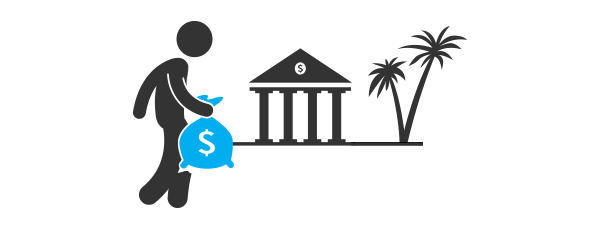The Expat Spouse as Household CFO: Banking in a Foreign Country
This article is an updated version of an installment in “The Expat Spouse as Household CFO” series. You can download an ebook of the entire series here.
If you are a part of an expat household, it may not at first seem necessary to open a local bank account in the country where you and your spouse live and work. However, there are several reasons why you might choose to do so. Simply put, having a local bank account can make managing your overseas finances easier and cheaper.

For example, using a local account means you and your spouse can receive salary and overseas fund transfers, pay local bills, and have ready access to the local currency, while also minimizing fees on international ATM transactions and foreign exchange. To help you get started banking in a foreign country, here are some considerations and tips:
Choosing a Bank That Fits Your Needs
Once you and your spouse have decided that having a local bank account will be helpful in managing your overseas finances, the next question becomes: Which bank should you choose? In some cases, your spouse’s company may dictate where their salary must be deposited. But if you are free to select your bank, here are a couple of pointers to help with your selection:
- Convenience: Where are bank branches located, and what are their operating hours?
- Language: Can you communicate with the bank’s staff?
- Services provided: Does the bank provide expats with services you are interested in, such as savings and checking accounts, debit cards, online access, multi-currency options, and bill pay?
- International transfers: How easy is it to transfer funds overseas, and what are the fees?
- Other fees: How competitive are fees for services such as ATM withdrawals, checkbooks, and local fund transfers?
- Online access: Does the bank have a consumer website, what language is it in, and how user-friendly is it?
- Telephone access: Is there a bank consumer hotline available in a language you understand, and how long do you have to wait on hold before you can talk to someone?
- Depositor protection: How safe are your deposits? Are they insured up to a certain amount?
- Interest income: What rate does the bank pay for deposits? Can you invest in fixed deposits with excess cash?
- Customer service: To gauge the bank’s overall level of service, check with other expats about their banking experiences.
Opening an Account
Once you have selected a local bank, it is time to open accounts. At a minimum, consider opening a savings account with ATM or debit card access, and, if available, a checking/current account as well as a local-currency credit card. You will want to apply for joint access to the accounts, so plan a time when you and your spouse can go to the bank together.
Check in advance as to what documents you will need to bring with you. At a minimum, you will need your passports or other personal IDs, and depending on the local rules and regulations, you may also need to show evidence of where you live (rental agreement or utility bill). You (or your spouse) may need to bring a work permit or other proof of employment. Finally, in some countries, banks may also ask to see a copy of a statement from your home-country bank.
Joint Accounts
In most cases, it makes sense for you and your spouse to have joint access to your new local bank accounts. However, be sure you understand in advance what “joint access” means in your local country—it may be different than what you had previously understood. For example, be clear whether one or two signatures are required on withdrawal slips or checks, and whether either party can initiate foreign wire transfers or close the account. If necessary, consider getting a local power of attorney drawn up that covers the account so that either of you can enact critical financial transactions in case of an emergency or the other’s absence.
Keeping Track
As with any bank account, you and your spouse will want to keep records of the cash flows in and out of the account. But while most banks will send you monthly statements, these may get delayed or lost in the mail. If it is available, sign up for online access to your account. This will enable you to balance your finances on your schedule, rather than waiting for a monthly mailing.
To further help in keeping records, consider using a personal financial software program to track your accounts. Multi-currency programs like Quicken can be invaluable to expatriates not only in helping to track all of your bank accounts (foreign and home), but also in keeping accurate records of your household’s income, expenses, and other financial assets.
For Americans: Reporting Foreign Bank Accounts
If you are a U.S. citizen, be aware that there are extra U.S. tax filing requirements for Americans with overseas financial accounts. Some of the forms that you may need to file include:
- FinCEN 114—Report of Foreign Bank and Financial Accounts (FBAR)
- Form 8938—Statement of Foreign Financial Assets
- Form 8621—Information Return for Passive Foreign Investment Company (PFIC)
See For American Expats: A U.S. Tax Form Checklist for more information on these forms and other U.S. tax filing requirements.
Find more articles by Peggy Creveling, CFA, on Google+
About Creveling & Creveling Private Wealth Advisory
Creveling & Creveling is a private wealth advisory firm specializing in helping expatriates living in Thailand and throughout Southeast Asia build and preserve their wealth. The firm is a Registered Investment Adviser with the U.S. SEC and is licensed and regulated by the Thai SEC. Through a unique, integrated consulting approach, Creveling & Creveling is dedicated to helping clients cut through the financial intricacies of expat life, make better decisions with their money, and take the steps necessary to provide a more secure future.
Copyright © 2018 Creveling & Creveling Private Wealth Advisory, All rights reserved. The articles and writings are not recommendations or solicitations, and guest articles express the opinion of the author; which may or may not reflect the views of Creveling & Creveling.

